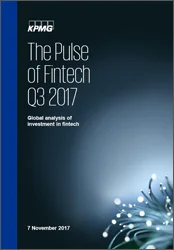BY Richard Summerfield
Procurement has continued to deliver solid savings and manage risk, according to the eighth annual 'Global Chief Procurement Officer Survey' from Deloitte.
While most procurement leaders feel supported by their executives, they are, however, unsure about whether they are contributing significant strategic value, the report suggests.
However, more procurement leaders believe that their teams have sufficient capabilities to deliver on their procurement strategy – 49 percent of those surveyed, compared to 40 percent in 2017. The survey also indicates that while many CPOs have high hopes for the potential of analytics to transform their profession, only a third of them are utilising such technology.
Though many organisations have identified digital skills as a major area of focus, the majority of companies are neglecting to prioritise digital functions. Just 3 percent of CPOs believe that their teams possess the skills required to maximise digital capabilities. Only 16 percent of procurement leaders surveyed were focused on enhancing these skills. Seventy-two percent of procurement leaders are spending less than 2 percent of their budget on training, compared to 66 percent in 2017. Furthermore, 17 percent of procurement leaders do not have a digital procurement strategy.
“With today's global supply chains, risk exists across geopolitical and economic disruptions," said Brian Umbenhauer, principal and global head of sourcing and procurement at Deloitte Consulting LLP. "There are demonstrated techniques to help drive value, reduce risk and meet goals – from digital transformation to increasing visibility and properly training teams – but CPOs right now are struggling to make the most of them. Major benefits and competitive advantage await those who do.”
Despite uncertainty around issues such as Brexit, NAFTA, weakness and volatility in emerging markets, rising geopolitical risks in the Middle East and Asia, as well as the spillover effects of a slowdown of China, many procurement leaders remain cautiously optimistic about the future.
“Lack of visibility is a major concern for CPOs as they look to navigate global headwinds and prepare their teams for the future of procurement and innovative technologies,” said Mr Umbenhauer. “Visibility throughout the supply chain is a key tool for meeting regulatory and corporate social responsibility requirements while mitigating risk.”
For most respondents, cost reduction, product and market development and managing risk are the top business priorities. Despite concerns, 61 percent of CPOs delivered better year-over-year savings performance than last year, with the highest-performing leaders excelling in executive advocacy, leadership, talent and digital.



